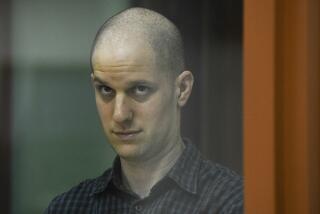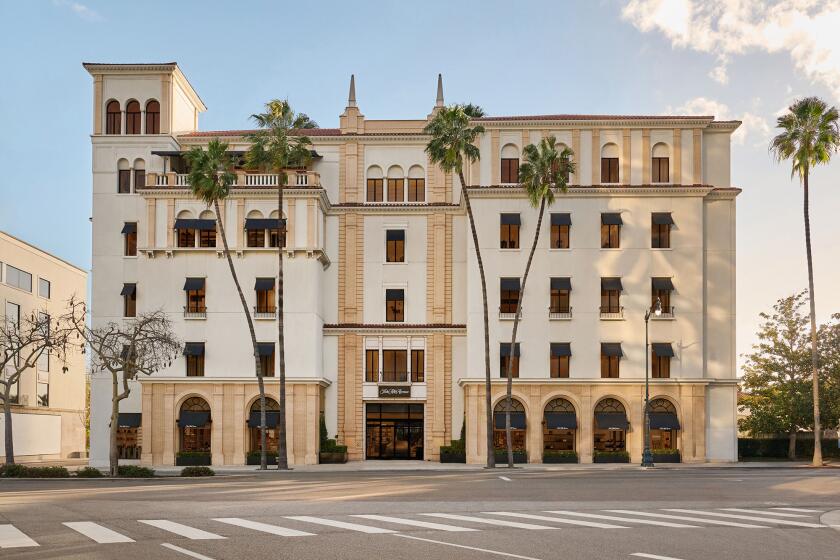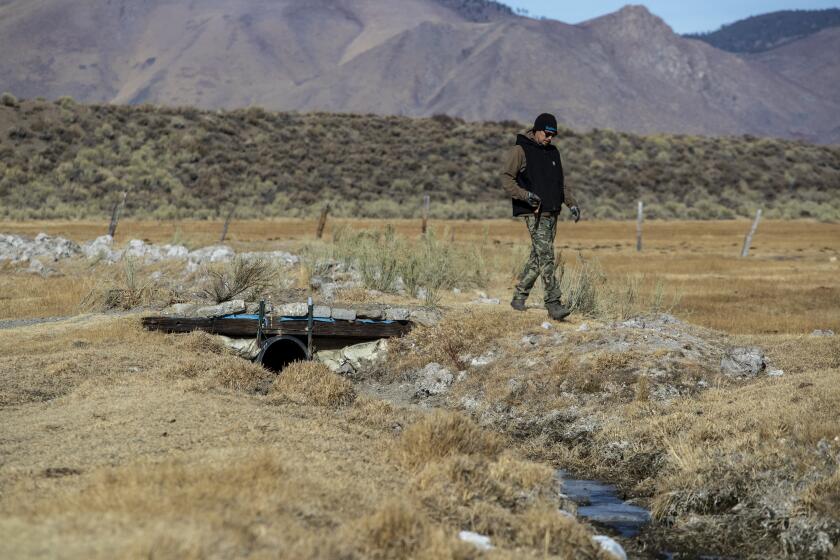Russians Hold Employee of San Diego Firm as Alleged Spy
Russian security agents have arrested an American employee of San Diego-based Qualcomm Inc. in the southern city of Rostov-on-Don, accusing him of spying with unregistered satellite communications equipment, officials disclosed Monday.
The U.S. Embassy here dispatched a consular officer to investigate the detention since last Tuesday of Richard L. Bliss and the interrogation of another American employee of the same company who has been released. In Washington, the State Department protested what it said had been a delay in granting consular access to Bliss until late Monday--almost a week after his arrest.
Bliss is a field technician for Qualcomm, a supplier of communications equipment with Russian projects in Moscow, Rostov and Chelyabinsk. Qualcomm said in a statement that Bliss was installing and testing a wireless telecommunications system for Electrosviaz of Rostov Region, a Qualcomm customer, and that the work was done in the presence of Electrosviaz representatives.
Qualcomm spokesman Dan Pegg in San Diego said Bliss “is not only not a spy, he was detained while doing his job as a Qualcomm employee installing a state-of-the art wireless local telephone system for the Rostov region.”
U.S. business community sources in Moscow said they had heard reports of Rostov authorities pressuring Qualcomm’s local office for kickbacks and speculated that Bliss’ arrest might have been an effort to force the company to hand over a bigger share of its profits.
Corruption is epidemic in Russia, and foreign business ventures are often confronted by local authorities with demands for bribes and payoffs that are exacted under the guise of taxes and licensing fees; these are imposed once an investor already has too much at stake to back out.
Telecommunications firms are especially attractive targets of corrupt officials because the market for reliable telephones is booming in regions that for decades were cut off from the outside world.
Russian independent television NTV quoted local officials of the Federal Security Service in Rostov as saying Bliss was one of six “suspects” in an espionage case and that he had been caught carrying out “a large-scale geodesic study with use of various satellite equipment that was illegally brought into Russia.”
By both Russian and U.S. accounts, Bliss, when arrested, was using a global positioning system, which orients a wireless telephone user to a satellite to permit voice or data transmission.
“The measurements he took were extremely accurate, and this information today is restricted except to those who have a special license,” said Valery Dyatlenko, chief of the security service’s Rostov bureau.
In Moscow, Federal Security Service officials said Bliss was under investigation for violating Article 276 of the Russian Criminal Code--an espionage charge that can carry up to 20 years’ imprisonment.
U.S. Embassy spokesman Richard Hoagland denied the Russian accusations, saying, “These are private-sector American citizens who have no connection to the U.S. government and are certainly not spies.”
Qualcomm is a leading manufacturer of wireless telecommunications equipment.
Pegg, the company’s spokesman, said the equipment that Bliss is charged with illegally possessing is “part of the basic infrastructure that was being installed, was on the importation documents. It was clear to everyone that that was either part of the permanent equipment that was to stay in Rostov or part of the instruments used for installation.
“To the best of our knowledge, we are compliant with Russian laws,” Pegg said.
Bliss, 29, has been a Qualcomm employee for six months and had been in Russia for two months as part of a seven-member Qualcomm team installing a $5.8-million wireless telecommunications system in the Rostov region.
“Our only interest is to get this young man out of custody and free again,” Pegg said.
Qualcomm said it has no plans to abandon the Russian market because of the incident.
“Rostow is part of what we believe will be a very large business in Russia for Qualcomm,” he said. “We’re looking forward to a lot more business in Russia. This is an issue we want to get to the bottom of and clear up, work to resolve it and make sure there are no misunderstandings like this in the future.”
Williams reported from Moscow and Kraul from San Diego.







